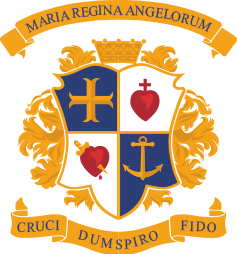Classics
‘Our own world would be immeasurably the poorer, and immeasurably less comprehensible to us, if we did not continue to interact with the Roman past.’
Professor Mary Beard
Intent
The influence of ancient Greece and Rome can be seen in almost every aspect of our daily life, from the Greek concept of democracy and the political organisations of the Roman Republic to many of our public buildings, and even the names of leading companies (such as Hermes and Nike).
We aim to give all of our students a stimulating introduction to the culture, language, literature and achievements of the Ancient Greeks and Romans. We encourage our students to develop their own opinions about the events, personalities and ideas of the classical world. In order to help them achieve this, we develop their powers of observation and deduction, their ability to think analytically, and their ability to communicate ideas effectively. In the process, we also hope to foster in each student a greater sense of their own cultural and linguistic heritage.
We strongly believe that Classics, the study of the history and culture of ancient Greece and Rome, and their languages all contribute to providing a gateway to the humanities.
Latin Curriculum Maps
-
Yr07 Latin Curriculum Map
download_for_offline
download_for_offlineYr07 Latin Curriculum Map
- Yr08 Latin Curriculum Map download_for_offline
download_for_offlineYr08 Latin Curriculum Map
- Yr09 Latin Curriculum Map download_for_offline
download_for_offlineYr09 Latin Curriculum Map
- Yr10 Latin Curriculum Map download_for_offline
download_for_offlineYr10 Latin Curriculum Map
- Yr11 Latin Curriculum Map download_for_offline
download_for_offlineYr11 Latin Curriculum Map
- Yr13 Latin Curriculum Map download_for_offline
download_for_offlineYr13 Latin Curriculum Map
Classical Civilisation Curriculum Maps
-
Yr08 Classical Civilisation Curriculum Map
download_for_offline
download_for_offlineYr08 Classical Civilisation Curriculum Map
- Yr09 Classical Civilisation Curriculum Map download_for_offline
download_for_offlineYr09 Classical Civilisation Curriculum Map
- Yr10 Classical Civilisation Curriculum Map download_for_offline
download_for_offlineYr10 Classical Civilisation Curriculum Map
- Yr11 Classical Civilisation Curriculum Map download_for_offline
download_for_offlineYr11 Classical Civilisation Curriculum Map
- Yr12 Classical Civilisation Curriculum Map download_for_offline
download_for_offlineYr12 Classical Civilisation Curriculum Map
- Yr13 Classical Civilisation Curriculum Map download_for_offline
- Yr09 Classical Civilisation Curriculum Map download_for_offline
- Yr08 Latin Curriculum Map download_for_offline






